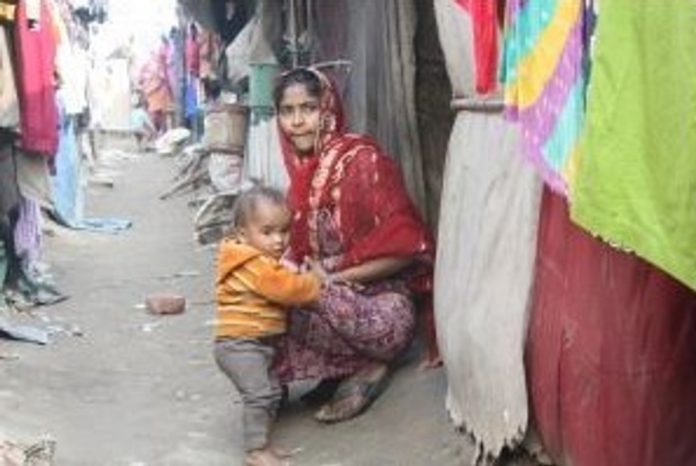By Shalini Perumal
India initiated the deportation of Myanmar refugees, including Rohingya, on March 8. This move comes weeks after New Delhi announced the termination of a visa-free border policy with Myanmar called the Free Movement Regime (FMR), marking a significant shift in India’s policy toward the country, which has plunged into crisis since the 2021 military coup.
Thousands of civilians and hundreds of Myanmar troops have fled into India to seek asylum, particularly states in the northeast, where communities on both sides of the border share ethnic, familial and religious ties.
While the troops have been quickly repatriated, the influx of refugees has raised concerns for India’s government about the potential for communal tensions to spread from the northeast to the rest of India.
The first batch of Myanmar nationals, numbering at least 77, who entered India “illegally” have been deported. This is according to Manipur State Chief Minister N. Biren Singh,
The northeastern state has been grappling with communal violence since clashes erupted in May last year, resulting in nearly 200 killed. The 77 refugees were brought to the border town of Moreh, India and handed over to Myanmar authorities.
India’s stance on refugees has drawn criticism from human rights defenders, as the country has never signed the U.N. Refugee Convention, nor does it have its own domestic laws to protect refugees.
Furthermore, India is set to implement a controversial citizenship law that offers amnesty to non-Muslim undocumented immigrants from Pakistan, Bangladesh, and Afghanistan.
The law, passed in 2019, aims to grant citizenship to religious minorities fleeing persecution in these neighbouring countries. However, critics argue that the law discriminates against Muslims and is inconsistent with India’s founding principles of secular democracy.
The Citizenship Amendment Bill (CAB) has been met with widespread protests, resulting in scores of arrests with some even killed. While the law purportedly aims to protect religious minorities, critics argue that it should have included Muslim minorities facing persecution in their respective countries, such as the Rohingya from Myanmar.
Fazal Abdali is a prominent refugee rights lawyer based in Delhi with experience defending the rights of minorities and refugees at various courts, including the Supreme Court. He emphasized the ongoing challenge concerning the identification and deportation of Rohingya refugees, which dates back to 2017.
“This is discrimination,” said Abdali, referring to the CAB selective inclusion of only Pakistan, Afghanistan, and Bangladesh, which are Muslim-majority countries, in the legislation.
He argued that religious persecution cannot be selectively addressed, citing instances of persecution faced by Hazaras in Afghanistan and non-religious individuals in Bangladesh.
Abdali criticized the terminology of “illegal immigrants,” advocating for a shift in perspective and recognition of refugees’ plight, particularly in cases of documented persecution like that faced by the Rohingya in Myanmar.
The Rohingya come from Rakhine (Arakan) State and are widely recognized as the world’s most persecuted minority group by the U.N. They have sought refuge in neighboring Bangladesh and India.
Human Rights Watch estimates that 40,000 Rohingya currently reside in India as refugees or asylum seekers. Whereas over one million reside in the refugee camps of Bangladesh.
Within India, some Rohingya have established themselves in Delhi, while others have erected makeshift dwellings in regions spanning Uttar Pradesh, Haryana, and Kashmir.
Notably, a significant number of Rohingya have settled along the relatively obscure and permeable border between Uttar Pradesh and Delhi, known as Kalindi Kunj, along the banks of the Yamuna River.
*Halima Khaleem, age 40, is a mother of two and a resident of Kalindi Kunj for the past six years. She fears the consequence of this new law.
“I am afraid of what will come of us if we have to go back to Myanmar. I am afraid for my children mostly,” she told DVB on the condition of anonymity.
“We are Muslim and are not accepted here [in India]. We want to just be safe,” said *Mohammad Khatun, age 36, Halim’s brother-in-law and a father of three.
The Indian government’s move to deport Myanmar refugees further exacerbates concerns about human rights violations and delineates the need for a comprehensive and inclusive refugee policy that upholds the principles of equality and non-discrimination.
—
*names changed to protect their identities
Shalini Perumal is a creative international development professional who has worked previously in Mae Sot, Thailand at Mae Tao Clinic, a charity that serves Karen and other Burmese migrants and refugees living in Thailand. She is currently a freelance journalist as well as Communications Officer at ActionAid India in New Delhi. The views expressed in the article are her own and do not necessarily reflect those of the organisation.



